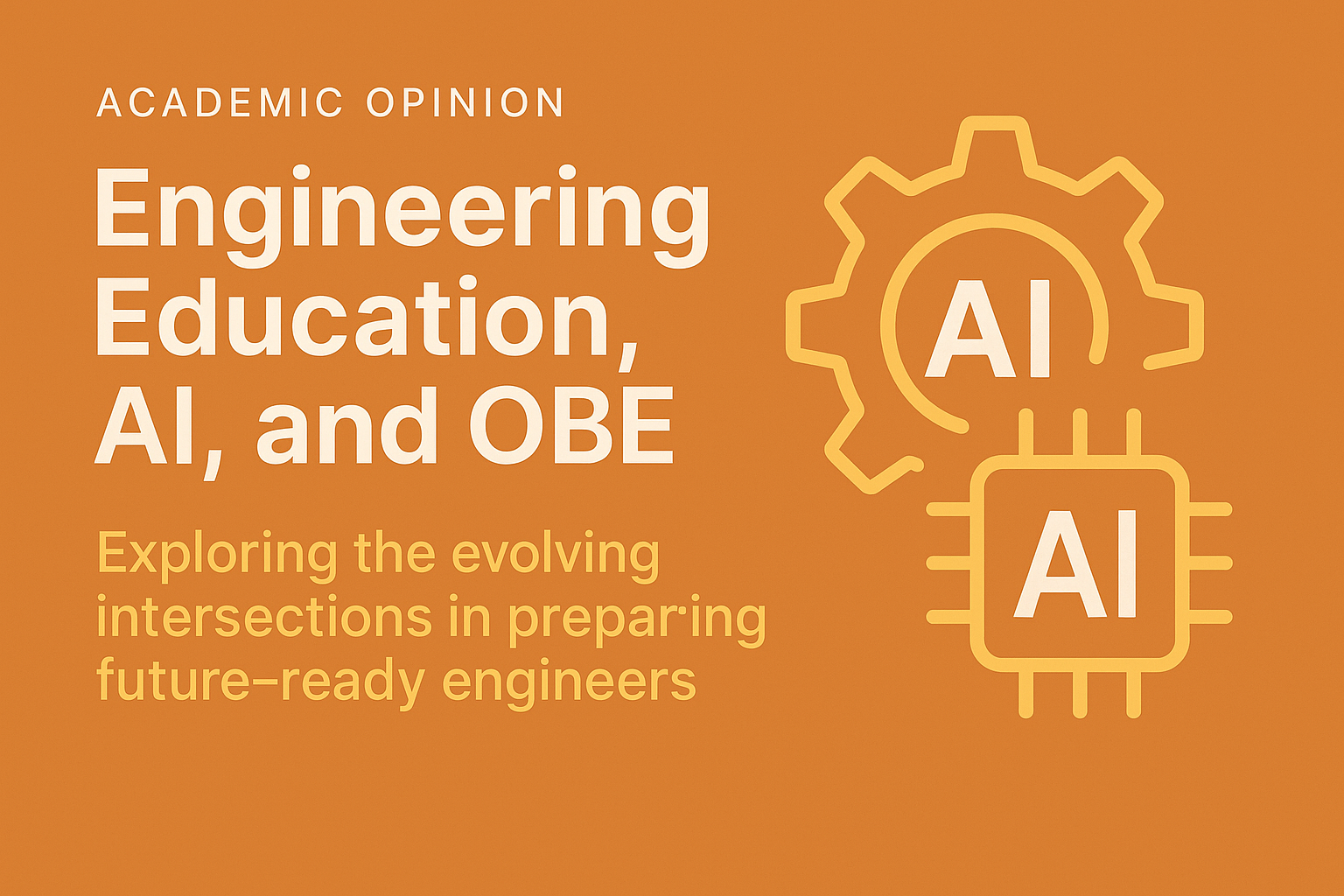Posted under: Academic Opinion | By Dr Sue | Published on May 23, 2025
“We’re not just preparing engineers for jobs. We’re preparing them for futures that don’t even exist yet.”

In today’s rapidly evolving landscape, buzzwords like AI, OBE, and future-ready graduates dominate academic conversations. But what happens when we stop treating them as trends — and start treating them as interconnected tools in our engineering classrooms?
This is the intersection I’ve been thinking deeply about: how Artificial Intelligence (AI) and Outcome-Based Education (OBE) are not just compatible, but co-dependent if we truly want to equip our students for tomorrow’s engineering challenges.
🔍 A Quick Dive: Why This Trio Matters
- OBE ensures our curriculum isn’t just about what students know, but what they can do.
- AI brings the tools — personalization, automation, real-time feedback.
- Engineering education provides the platform where both meet — to create problem solvers, collaborators, ethical thinkers.
Together, they allow us to rethink learning outcomes, redesign assessments, and most importantly, redefine readiness.
⚙️ Not Just Theory — But Practice
In classrooms today, AI is already doing more than just grading. It’s:
- Helping students write better (with tools like Grammarly and Quillbot),
- Simulating real-world labs (hello, virtual hydraulics!),
- And even nudging students to think critically through prompt-based learning.
But here’s the catch: AI can’t replace our judgment — only enhance it. That’s where ethical integration and OBE come in, reminding us that tech must serve outcomes, not override them.
💡 My Takeaway as an Educator
To make this trio work, we need more than policy changes. We need a mindset shift — from fear of AI to co-creation with AI. We need to stop asking “how do we stop students from using AI?” and start asking “how do we teach them to use it responsibly, critically, and creatively?”
Because the goal isn’t just to future-proof the curriculum.
The goal is to future-empower the learner.